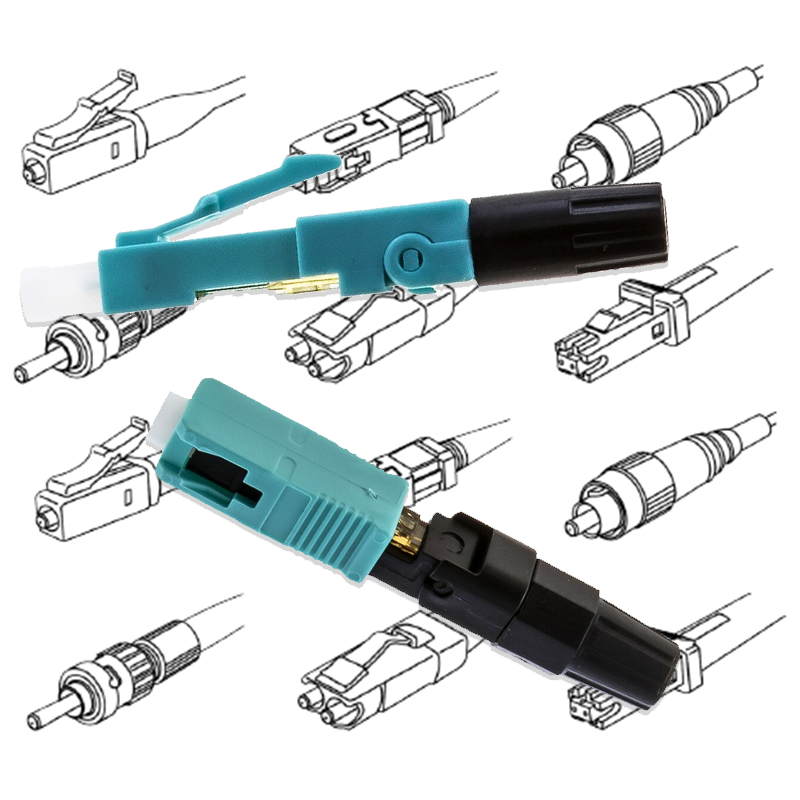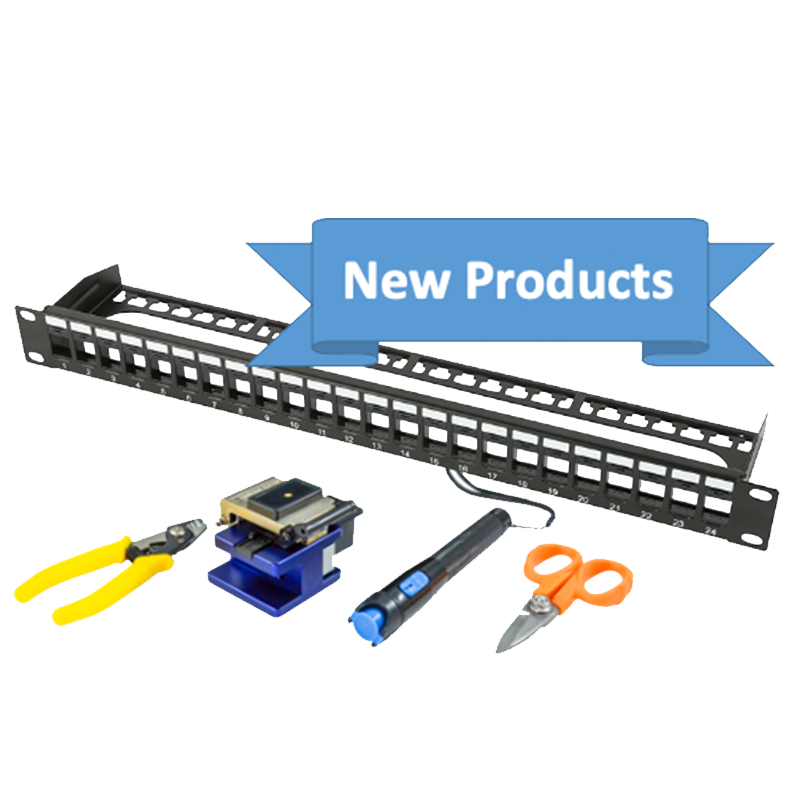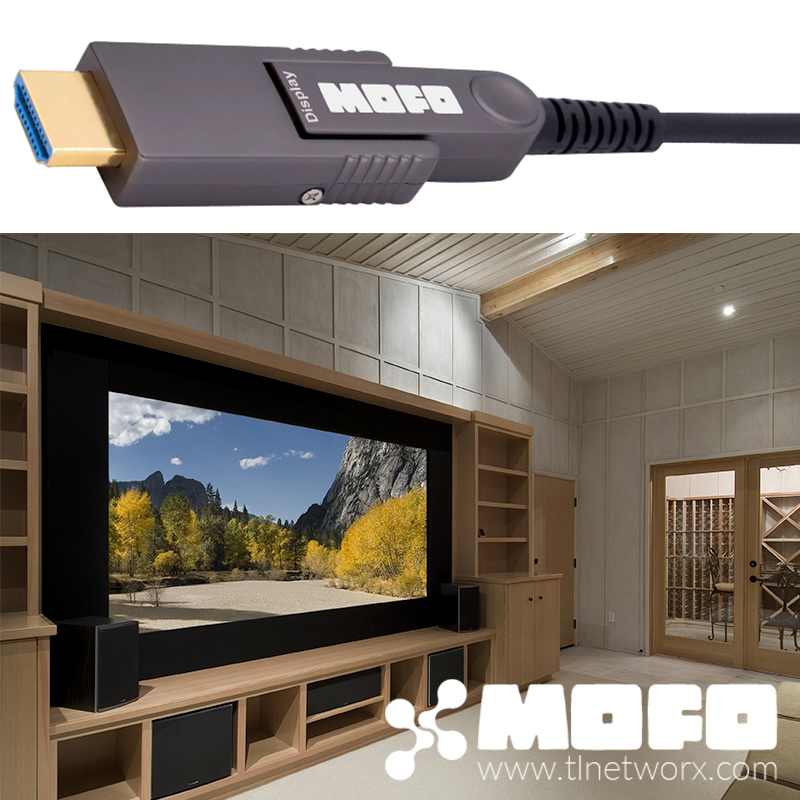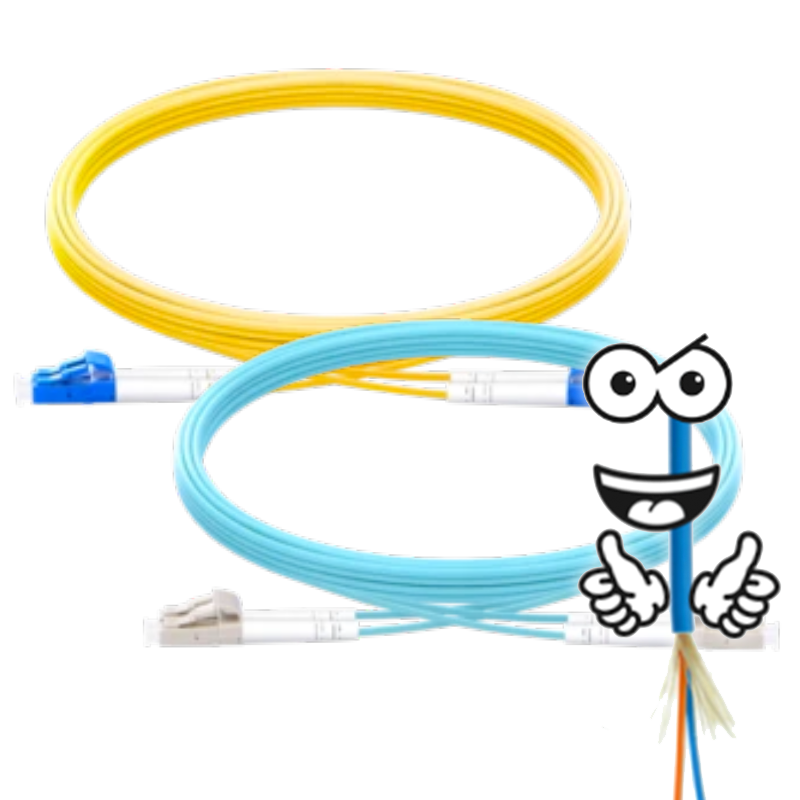Understanding Fiber Connector Types

Fiber optic connectors are available in a variety of formats depending on the cable type and connection style. The below guide explores the connectors commonly used in audio-visual, networking, broadcast and other low-voltage applications.
View step-by-step connector termination videos.
LC Connector

LC (Lucent) connectors are one of the smallest formats of connector. They've become the standard for SFP modules and most modern network electronics.
Common applications: networking, SFP modules, AV over fiber extenders, high-density connection applications
SC Connector

SC (subscriber or standard) connectors are larger and less expensive than LC connectors. Their size makes them easier to terminate, but it also limits their application in modern, size-sensitive electronics.
Common applications: networking, multiplexers, media converters, demarc wiring, telecom applications
ST Connector

ST (straight tip) connectors provide a secure, spring-loaded locking connection that's similar to the BNC connectors historically used in AV applications.
Common applications: networking, datacom applications
FC Connector

FC (ferrule core) connectors are rapidly decreasing in use thanks to the rise of LC connectors. Similar to the ST connector, FC connectors provide a secure, locking connection that delivers a precise optical wave.
Common applications: video over fiber electronics, test equipment, telecom applications
MTRJ Connector

MTRJ (mechanical transfer registered jack) connectors are typically used for duplex multimode connections and are increasing in popularity due to their small form factor and easy connection/disconnection. They look and feel similar to a traditional RJ45 connector.
Common applications: networking
FJ Connector

FJ (fiber-jack or opti-jack) connectors are similar to MTRJ connectors in size and scope. They were designed by Panduit™ to offer a quick connection option when wiring buildings with fiber.
Common applications: building wiring, networking
Connector Color Guide
Fiber optic connectors are specific to either multimode or single mode fiber optic cable and the connector's color typically designates compatibility. It's important to use the proper connector on the proper cable because of different optical core and ferrule sizes.
The below chart lists the commonly used color-codes.
| Fiber Type | Fiber Grade | Standard Connector Color | Connector Style | Fiber Core Size |
| Single Mode | OS1, OS2 | Blue | flat (standard) |
8 - 10.5um (9um common) |
| Single Mode | OS1, OS2 | Green | angled (APC) | 8 - 10.5um (9um common) |
| Multimode | OM1 | Beige | flat | 62.5um |
| Multimode | OM2 | Black | flat | 50um |
| Multimode | OM3, OM4 | Aqua | flat | 50um |
| Multimode | OM5 | Lime Green | flat | 50um |




Comments